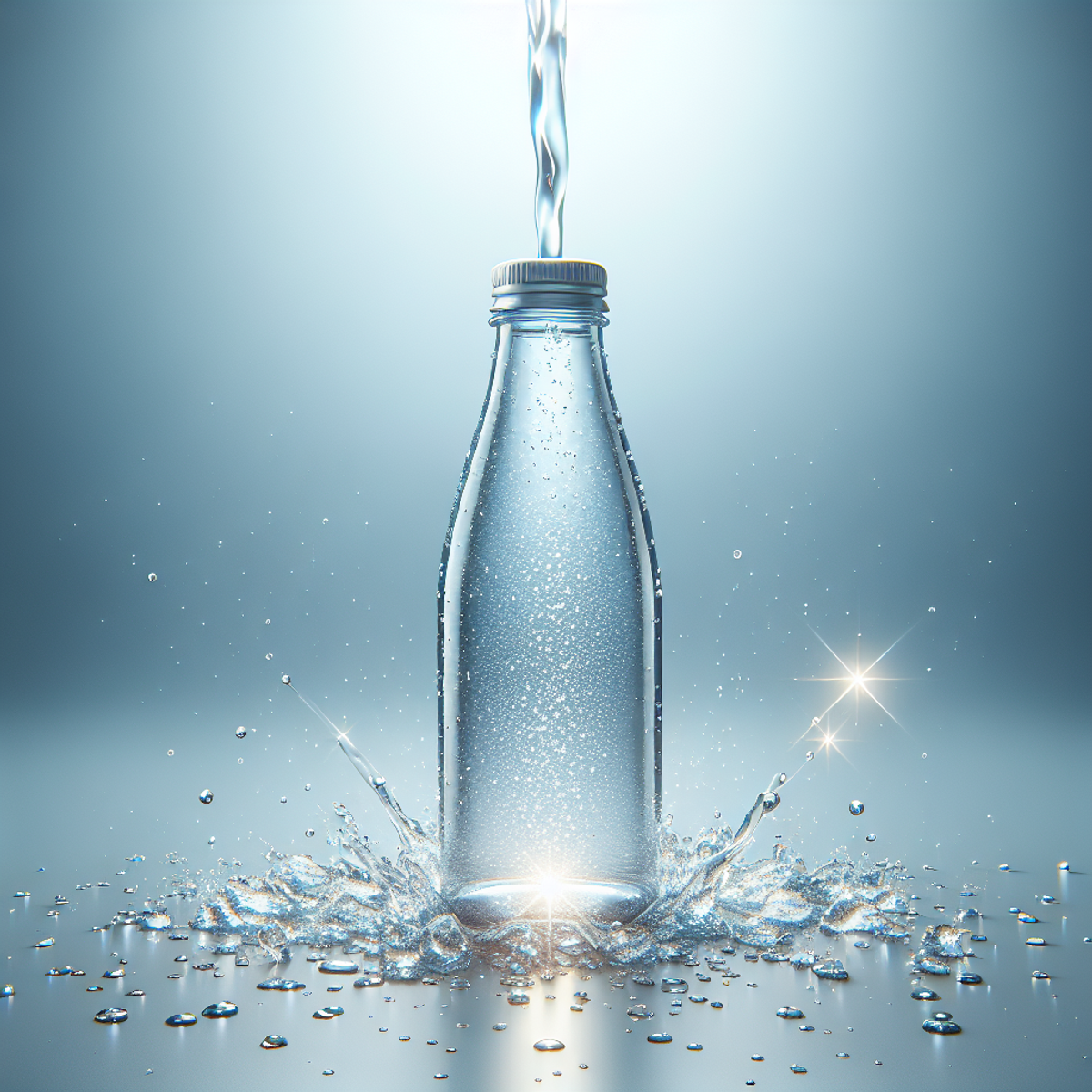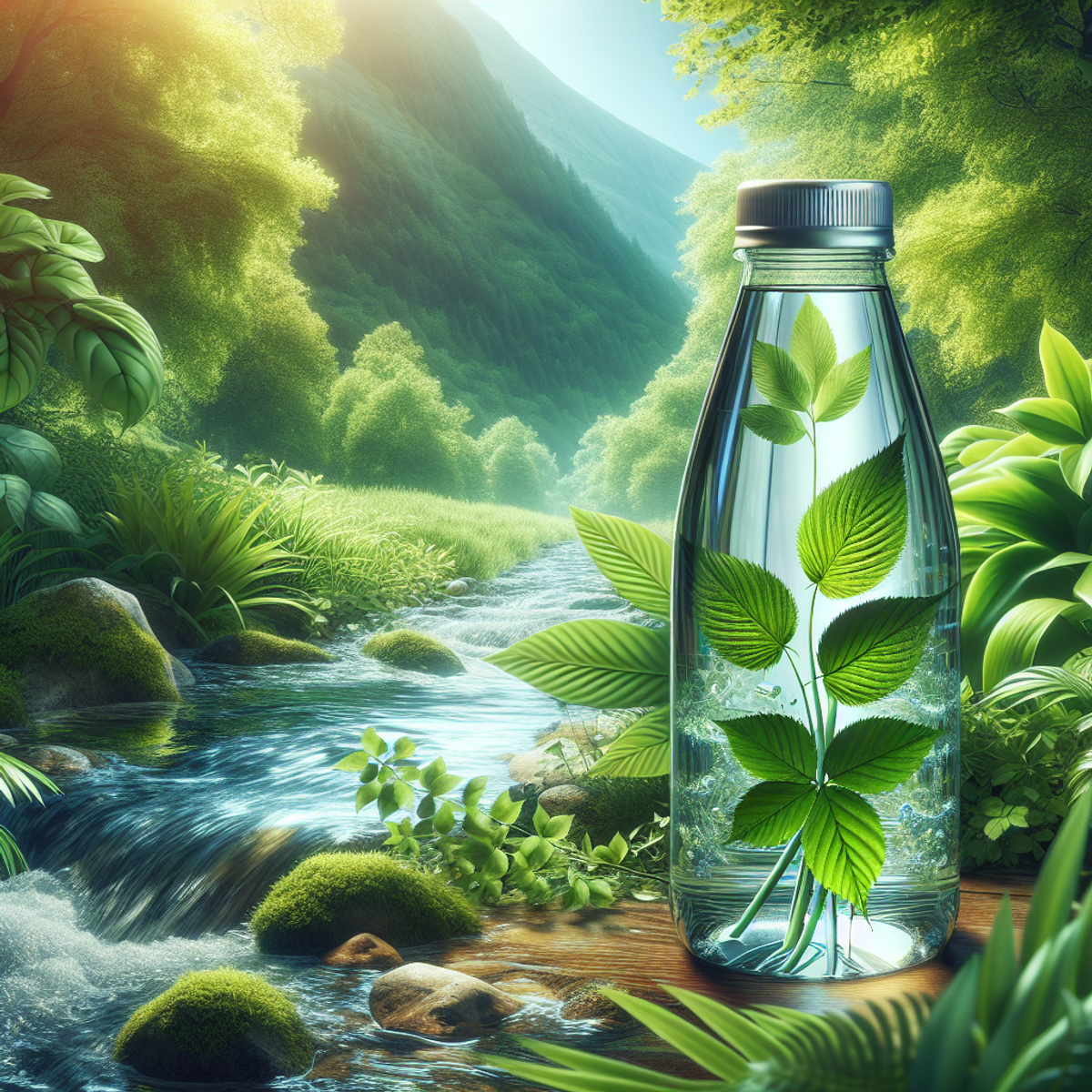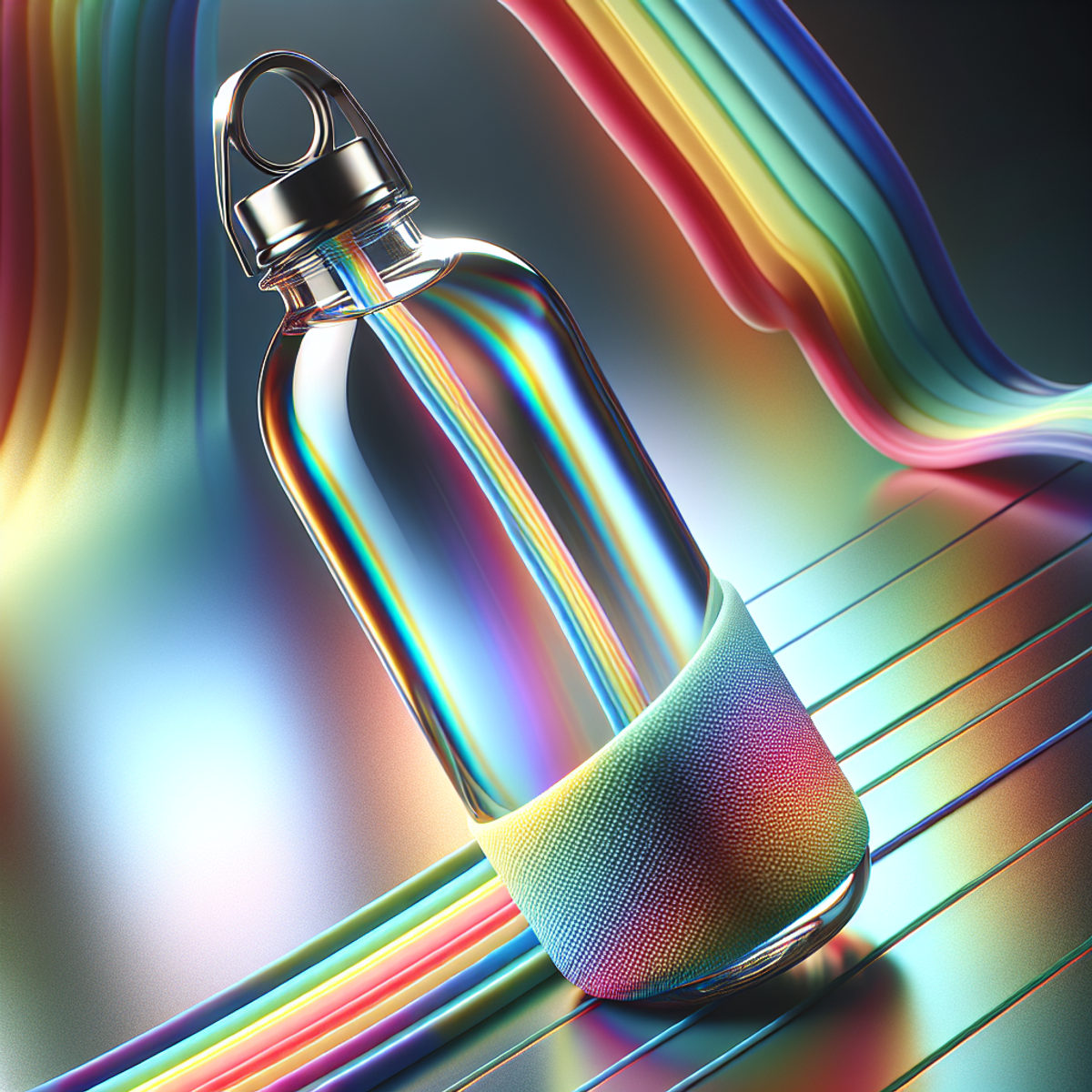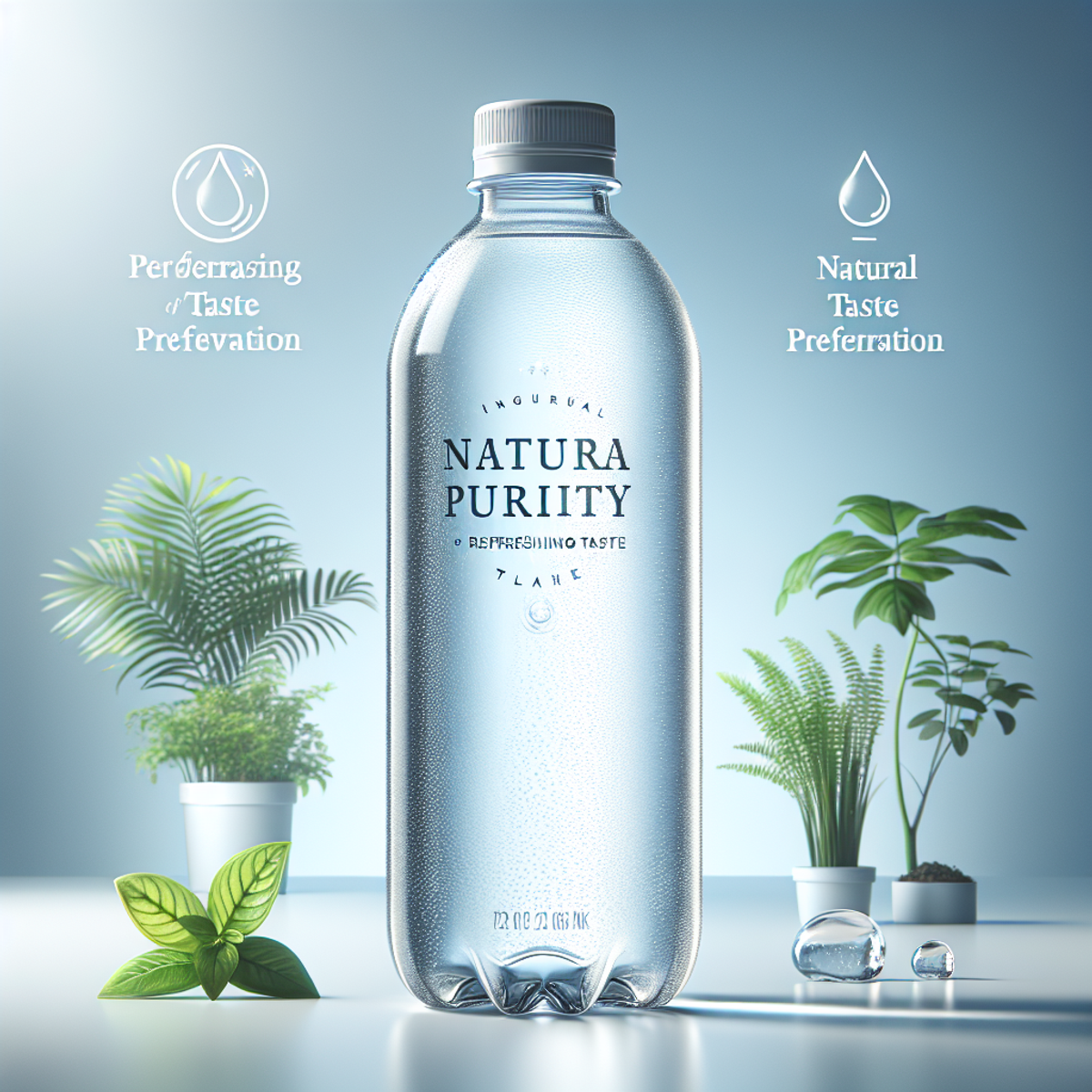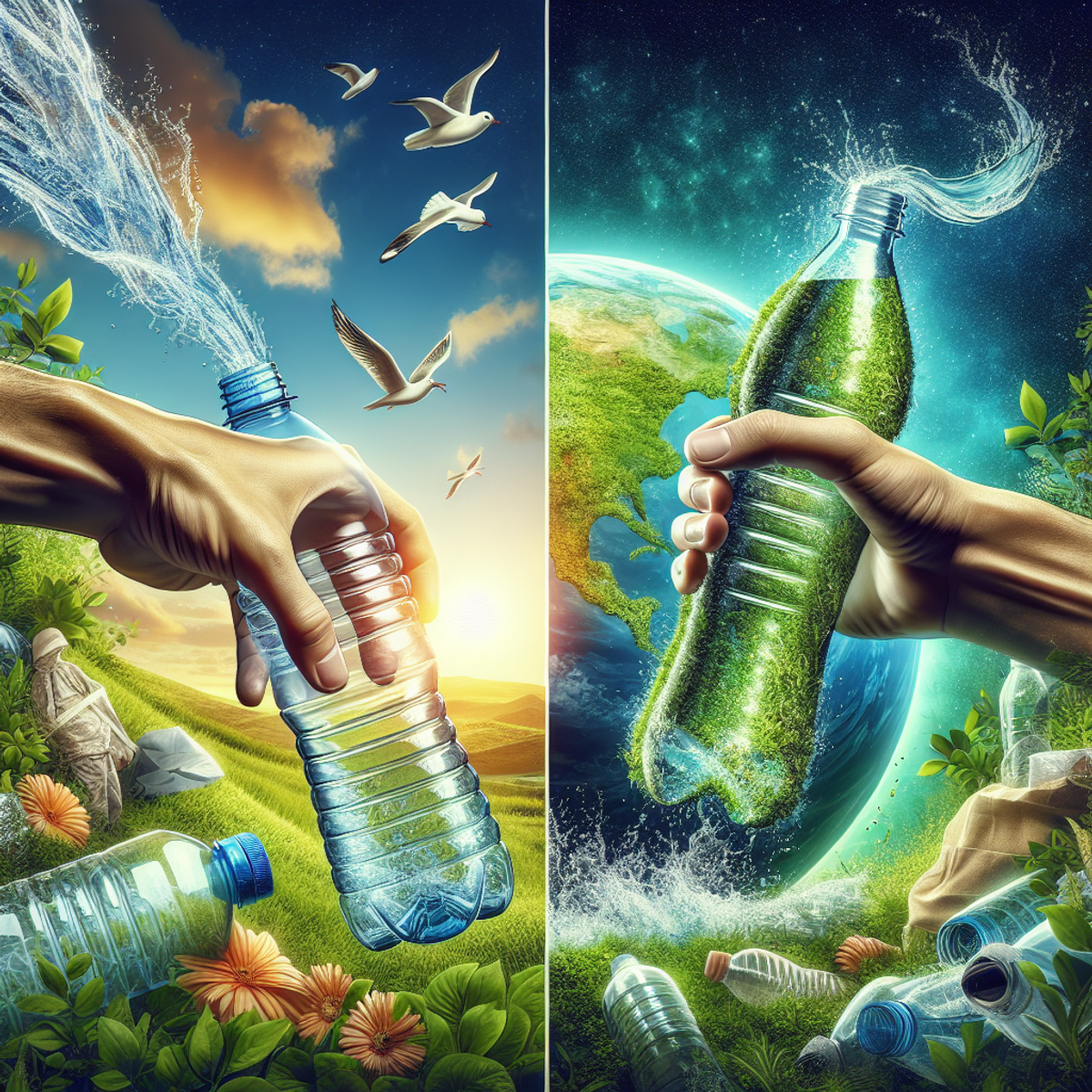Introduction
Hey there, hydration seekers! You’ve probably seen those sleek non-toxic glass water bottles everyone’s carrying around. They’re not just a trendy accessory; they’re a top choice for staying hydrated. But wait, let’s address some rumors that might be circulating. Some people believe these bottles are fragile, but here’s the truth: they’re actually incredibly strong and can handle your daily activities.
Why is this important? Because when it comes to choosing sustainable and safe ways to hydrate, you shouldn’t have any doubts or false information. Glass water bottles are both good for your health and the planet. They don’t compromise the quality of your water because they’re non-toxic, and on top of that, they look pretty stylish too.
In this article, we’re going to debunk common myths about glass water bottles. Get ready to learn some eye-opening facts that will boost your confidence in making the switch. Glass is here to stay, and once we dispel these misconceptions, you’ll understand why it should be part of your daily routine.
Looking for recommendations? If you want to explore some of the best options available in the market today, check out our curated list of The 7 Best Glass Water Bottles for a healthy, chemical-free hydration experience without compromising on style and quality. But first, let’s clear up some glass misconceptions!
Myth 1: Glass water bottles are fragile and prone to shattering if dropped
The perception of glass as a fragile material has been around for ages. It’s easy to see why – early glass items were indeed delicate and easily broken. However, with modern advancements in materials science, this image of glass doesn’t hold up.
Why the Fragile Reputation Persists:
- Historical Context: Glass used to be synonymous with delicacy and elegance, often found in fine dining and decor.
- Previous Experiences: A single experience of breaking a traditional glass item can leave a lasting impression.
- Visual Factor: The transparent nature of glass can psychologically impart a sense of fragility.
Despite these perceptions, today’s glass water bottles are not your grandma’s crystal vase. They’re tough.
Tempered Glass – A Game Changer:
- Heat Treatment: This process strengthens the glass by heating it up and rapidly cooling it down.
- Strength Boost: Tempered glass can be up to four times stronger than untreated glass.
- Safe Breakage: Even when they do break, they shatter into small, rounded pieces rather than jagged shards.
Real-world examples abound where tempered glass shows its mettle. From the windshields of cars to the screens of smartphones, this material has proven itself under stress. High-quality water bottles made from tempered glass boast similar resilience.
Impact Resistance and Safety Standards:
- Certifications: Look for marks like ANSI or ISO that indicate compliance with strict safety standards.
- Design Innovations: Features like silicone sleeves not only improve grip but also add a protective layer.
- Consumer Trust: Millions rely on non-toxic glass bottles daily for their hydration needs; their continued popularity is a testament to their durability.
Incorporating technologies from other industries where safety is paramount, non-toxic glass water bottles have adapted to be more resistant to everyday mishaps. When dropped, they might bounce or withstand the impact altogether instead of shattering, thanks to both material choice and clever design enhancements.
By confronting the myth head-on with evidence of technology improvements and safety features designed into contemporary non-toxic glass water bottles, it becomes clear that fragility isn’t the Achilles’ heel it once was for glass containers. With careful handling and an appreciation for the advancements in production techniques, you can rely on these eco-friendly options for staying hydrated without worry.
Myth: Glass water bottles are heavy and inconvenient to carry around
When it comes to glass water bottles, there’s a common misconception that they’re heavy and cumbersome. But is that really the case? Let’s debunk this myth and explore the truth behind it.
Addressing the Weight Concern
Glass might seem like a weighty choice for a water bottle, but in reality, the difference in weight between a glass bottle and other materials like plastic or metal is minimal. Here’s why:
- Perceived weight: Yes, glass has some heft to it, but when you’re carrying around a water bottle filled with liquid, the weight of the container itself becomes negligible.
- Advantages of glass: Glass offers several advantages over other materials, such as being BPA-free and maintaining the taste and quality of your beverage. These benefits often outweigh any slight increase in weight.
Dispelling the Inconvenience Myth
In addition to concerns about weight, some people believe that glass water bottles are inconvenient to use on-the-go. However, this couldn’t be further from the truth. Here’s why:
- Durability: High-quality glass bottles are designed to be sturdy and resistant to breakage. They can withstand everyday bumps and knocks without shattering.
- Ergonomic designs: Many glass bottles feature ergonomic designs that make them easy to hold and carry, regardless of their material.
- Portability options: If you’re worried about carrying your glass bottle around, there are solutions available such as protective sleeves or dedicated compartments in bags and backpacks.
The Benefits of Choosing Glass
Now that we’ve addressed the concerns about weight and convenience, let’s take a moment to appreciate the benefits of choosing a glass water bottle:
- Purity: Unlike plastic or metal containers, glass doesn’t leach any harmful chemicals into your drink. It provides a clean and pure drinking experience.
- Sustainability: Glass is a recyclable material, making it a more eco-friendly choice compared to single-use plastic bottles.
- Aesthetics: There’s something visually appealing about a glass water bottle. Its sleek and transparent design adds a touch of elegance to your daily hydration routine.
Conclusion
Don’t let the myths surrounding glass water bottles discourage you from making a sustainable and healthy choice. The slight weight difference and perceived inconvenience are outweighed by the numerous benefits that glass offers.
So go ahead, grab yourself a stylish glass water bottle and stay hydrated in the most refreshing way possible!
Myth 3: Glass water bottles are expensive compared to other materials
When you see that sleek, new glass water bottle on the shelf, it might seem more expensive than its plastic or metal counterparts. But let’s explore the cost of buying a glass water bottle versus the benefits it offers in the long run.
Debunking the Cost Myth
1. Sticker Shock vs. Lifetime Value
Sure, paying a little extra upfront may seem like a financial burden, but think of it as an investment in your well-being and the planet. While single-use plastics keep piling up in landfills, glass bottles prove their durability over time.
2. Cost Per Use
Calculate how many times you would refill your glass bottle throughout its lifespan. Then divide the total cost by that number. Suddenly, it doesn’t seem so pricey anymore! In fact, it can be more economical than constantly buying disposable bottles.
3. Quality Over Quantity
Glass water bottles are like high-quality gems for staying hydrated—they’re designed to last and maintain purity without sacrificing performance. Opting for glass means fewer replacements and consistent functionality.
The Advantages of Choosing Glass
Now, let’s explore the benefits—both for your wallet and the environment—of opting for a reusable choice like glass:
- Reduce Disposable Costs: Did you know? By avoiding single-use bottles, you can save a significant amount of money each year. Additionally, with glass, there’s no lingering taste of guilt from harming our planet.
- Reuse Creatively: Unlike plastic that degrades over time, glass can be recycled endlessly without any loss in quality—a win-win situation for both your finances and Mother Earth.
- Energy Efficiency: While producing a glass bottle may initially require more resources compared to other materials, recycling them consumes approximately one-third less energy than creating new ones from scratch.
Affordable Glass Bottle Brands
Here are some wallet-friendly brands that offer durable and budget-friendly glass bottles:
- EcoVessel: They combine sustainability with style to provide you with affordable choices that don’t compromise on quality.
- Lifefactory: This brand offers vibrant options that are easy on the wallet and built to last.
- Ello Syndicate: With their convenient silicone sleeves for a better grip and pocket-friendly prices, they’re ideal for busy individuals who want to stay hydrated without overspending.
By considering these brands, you can enjoy all the benefits of owning a glass water bottle—without assuming it’s too expensive. Remember, while certain alternatives may initially seem cheaper, none can match the long-lasting value and environmental advantage of a reliable glass water bottle.
Myth 4: Glass water bottles do not provide insulation for hot or cold beverages
Insulation is a key feature in the world of beverage containers, and it’s often thought that glass water bottles fall short in this department. Let’s clear the air: the assumption that glass bottles lack thermal insulation properties is not entirely accurate. Here’s why:
Understanding Insulation Basics
Insulation in beverage containers is designed to slow down the heat transfer between your drink and the environment. While it’s true that a single layer of glass can’t rival the insulation prowess of some other materials, advances in glass manufacturing have significantly improved its insulating capabilities.
Material Matters
Traditional glass does conduct heat relatively quickly, but that’s only part of the story. When you pour hot tea or ice-cold lemonade into your standard glass bottle, it will eventually reach room temperature—nothing groundbreaking here.
However, let’s delve into how modern innovation has reshaped this narrative:
The double-walled glass insulation technology is like a game-changer in the flask league. Imagine a glass bottle engineered with two layers of glass and an air vacuum between them—sounds cool, right? This vacuum acts as a barrier to heat transfer, keeping your hot drinks warm and cold drinks chilled for extended periods.
Double-Walled Magic
The double-walled design creates a thermal insulation effect similar to what you’d find in high-end stainless steel bottles. It’s pretty simple: no air equals minimal heat movement. Your morning joe stays steaming, and your post-workout smoothie keeps its cool.
Benefits Beyond Temperature
These insulated bottles aren’t just about maintaining temperatures; they prevent condensation too. Say goodbye to those annoying sweat rings on your desk!
Now let’s talk versatility. Glass is like that one friend who gets along with everyone—it’s adaptable. Whether you’re sipping on piping hot herbal tea or enjoying a refreshingly cold fruit infusion, glass maintains the desired temperature for both extremes.
Hot Sips
For those who love their beverages lava-hot, an insulated glass water bottle means no more lukewarm disappointments during your commute or at your desk.
Chilled Gulps
And for the cold-drink aficionados out there, imagine lounging by the pool with your icy beverage still frosty hours later.
Double-walled glass bottles are not just about functionality; they’re often beautifully crafted too, turning heads while they keep temperatures steady.
To sum up, don’t be fooled by old notions of glass being a poor insulator. With advancements like double-walled construction, glass water bottles superbly manage the climate of your beverages—be it hot or cold.
Remember:
- Always check if you’re getting a double-walled bottle when insulation is a priority.
- Look out for additional features like silicone seals and lids designed to further enhance insulation.
Myth 5: Glass water bottles are not suitable for everyday use due to odors and flavors
Sipping from a glass water bottle, you expect a clean, pure taste—anything less would be a disappointment. It’s a common belief that reusable bottles might retain flavors or develop odors over time. But here’s the twist: glass water bottles are actually champions at keeping your drinks tasting fresh.
Why glass reigns supreme in freshness:
- Material Matters: Unlike plastics or metals, glass doesn’t interact with your drink. It’s like a fortress for flavor preservation.
- Chemical-Free: High-quality glass is free from chemicals like BPA, which can sneak into your water from other types of bottles.
- Clarity in Every Drop: Ever notice how water just tastes better from a glass? That’s because glass delivers unadulterated purity.
Now, let’s dive in deeper and clear the air about those pesky rumors regarding odors and flavors.
Debunking Odor and Flavor Retention
Imagine taking a swig of lemon-infused water today and still tasting lemons when you switch to plain water tomorrow—not ideal, right? Well, with glass bottles, that scenario is far from reality. Here’s why:
- Non-Porous Surface: Glass has a smooth, non-porous surface preventing substances from lingering around.
- Flavor Saver: Swap out beverages as often as you like; glass won’t hold onto past flavors.
- Clean Slate: Each wash gives you a fresh start. No ghost of drinks past haunting your hydration experience.
Unveiling the Non-Reactive Nature of Glass
Let’s talk science for a sec—glass is inert. What does that mean for your daily hydration?
- Pure Science: Inert materials don’t react chemically with other substances. Your drink stays exactly how it should—pure and untouched.
- Taste Integrity: Love the subtle notes in your artisanal spring water? Glass keeps those delicate flavors intact.
- Consistently Clean: From the first sip to the last, expect nothing but the true taste of your chosen beverage.
But hey, don’t just take our word for it. The non-reactive property of glass isn’t just talk; it’s trusted by industries worldwide—think laboratories and winemakers who demand flavor precision.
Keeping Your Glass Bottle Pristine
Want to keep that bottle as fresh as day one? It’s all about maintenance:
- Regular Rinsing: Just finished your drink? Quick rinse it to keep things clean.
- Thorough Cleaning: Don’t skimp on scrubbing. A good bottle brush gets into all the nooks and crannies.
- Wide-Mouth Advantage: Got a bottle with a wide mouth? That makes cleaning even easier—no special tools required.
And if you’re wondering about dishwashers, many glass bottles are totally cool with taking a spin in there. Check your bottle’s care instructions to be sure.
Pro Tip: Stubborn smells got you down? Try soaking with baking soda and vinegar before washing—it’s like hitting the reset button on your bottle.
Remember these points when reaching for hydration throughout your day:
Glass doesn’t compromise on taste or freshness. Maintenance is simple: rinse, wash, repeat. With proper care, odors won’t stand a chance.
Conclusion
Time to throw away those old misconceptions! You now know the truth about non-toxic glass water bottles. They’re not just durable, they’re also great at preserving the taste of your drinks. Plus, they’re eco-friendly!
Are you ready to debunk the myths? Choose a reliable companion by getting yourself a glass water bottle. Drink with peace of mind, knowing that you’re doing something good for both the planet and your well-being. 🌎💧👍

